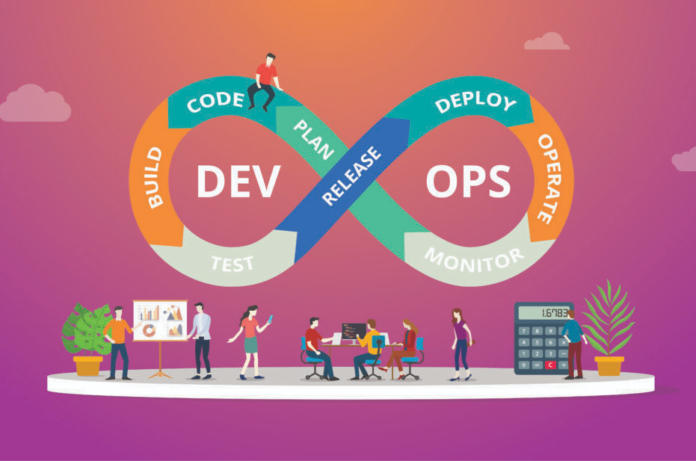Rapid application updates and deployment are essential for any business in a multi-cloud environment. DevOps has thus grown to be a term that no longer just applies to the software sector but has swiftly expanded to businesses of all sizes.
Amidst the burgeoning demand for DevOps expertise and the rapid growth of DevOps teams, there’s been a notable scarcity of resources addressing the knowledge gaps in effectively managing DevOps initiatives. Consider enrolling in a Leading SAFe course with SAFe Agilist Exam to bridge these gaps and foster successful DevOps implementation or DevOps Integration.
However, with the recent surge in the need for DevOps skills and the fast expansion of DevOps teams, there hasn’t been much information available to cover the knowledge gaps between businesses about how to manage their successful DevOps initiatives.
What Exactly is DevOps?
DevOps is a mix of cultural practices, philosophies, and technologies that increase an organization’s ability to provide apps and services at high speed: to improve and develop the products more rapidly than organizations, which use typical infrastructure management and processes of software development. Due to this speed, organizations may better serve their clients and compete more successfully in the market.
It is sometimes referred to as a collection of techniques that have evolved through time and have been adapted from agile working methods to unite the delivery and operational support groups better. This relates to the use of procedures and equipment established over time for things like test automation, continuous integration, and continuous deployment to facilitate a quicker flow of code. These code updates might include bug patches, new functionality, or architectural modifications.
What Exactly is Enterprise DevOps?
The conventional DevOps paradigm places a strong focus on automating the CI/CD cycle. It thoroughly examines each need and gives each automation job context. Enterprise DevOps focuses on carrying out tasks on a larger scale while supporting reliability and availability.
The focus on security is another feature of business DevOps that sets it apart from typical DevOps practice. DevOps for corporations must adhere to the accepted DevSecOps guidelines. Enterprise-level businesses must adhere to regulations that support the security and privacy of personal data.
How To Revolutionize Enterprises Using DevOps
Small At First
To convert their company into a DevOps organization, businesses must start small. They have a lot of work to do, including planning, training, and process development.
Better Communication
Organizations need communication tools that can compile information on the status of systems and software from both humans and machines. Understanding the nature of a problem and coordinating real-time actions should be made simple by the tools.
Improved Integration
Businesses that depend on outdated technologies and have trouble coordinating teamwork across departments should adapt. They must fully integrate their digital tools and work processes. When staff members need data, it will be simpler to get.
More Adaptability In Positions
Engineers and ITOps alike should have the knowledge and communication abilities to work with those outside of their fields of expertise. Click here to learn more about crucial DevOps responsibilities.
Having The Proper Equipment
Businesses intending to use DevOps may need to build a toolkit that enables agility, collaboration, automation, communication, and legacy compatibility.
Implementing A Cultural Shift
It takes more than just installing the appropriate tools to embrace DevOps. Businesses should decide on their objectives for cultural change and then choose the software solutions that will help them get there.
Enterprise DevOps Reduces Environment-Related Risk

When you utilize Enterprise DevOps, you educate your operations staff on how to automate and set up standard settings that teams can use interchangeably. For instance, an Enterprise DevOps approach to this would be to have the central IT group produce a collection of scripts to serve as a foundation for other groups if your organization has 40 groups producing apps on Apache Tomcat.
A standard set of virtual machine (VM) images or environments are provided by your operations teams in an Enterprise DevOps model so that development teams may automate them. Your development teams would be creating technologies to automate deployment to production in a more condensed DevOps model.
Bottom Line
Many elements of Enterprise DevOps are merely expansions of the DevOps we are used to in smaller firms, as you may have seen. Everything from taking into account the different stacks in use to the subtler nuances of compliance and change management.
To maintain the speed required by modern industry, those that use Enterprise DevOps are extending their skills to bigger initiatives.



































